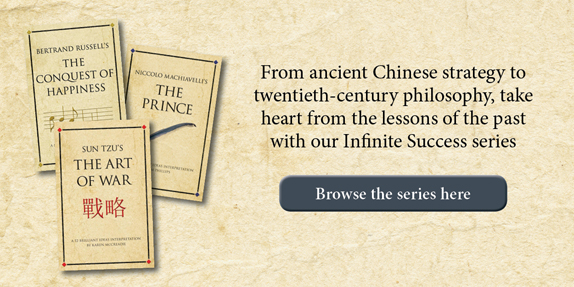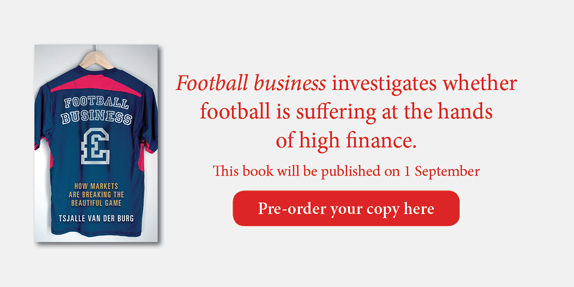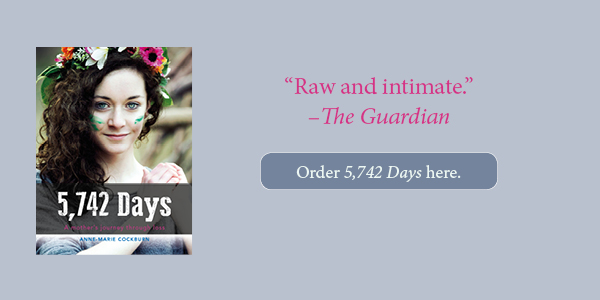Book publishing
Tony Blair’s sticking to his story
3 September 2014 by Catherine Holdsworth in Book publishing, Business and finance, Current events
We were all as baffled as the rest of the world to wake up this morning and find out that Tony Blair has won the GQ Award for philanthropist of the year. We’re sure the prestigious award will look just lovely in his million-pound mansion, though he should probably leave space for his imminent receipt of the Nobel Peace Prize.
Whatever we think, he’s clearly convinced the folks at GQ that he’s the real deal. Perhaps Tony is just not telling the rest of us everything about his missions in the Middle East, where he can hardly be hailed as a hero and saviour. But GQ’s woman of the year, Kim Kardashian, will undoubtedly be able to give him some tips on how to look good for the cameras while the world reels in confusion at his latest achievement.
There’s something … Machiavellian about Blair’s rise (and continued rise) from humble Prime Minister to all out celebrity philanthropist saving the Middle East. Yet, as long as he sticks to his original story, surely he is out of danger of being accused of having acted in haste in 2003 in Iraq.
Tim Phillips’ modern interpretation of Machiavelli’s The Prince, points out the value of taking control of your own story and using PR to its maximum effect. It’s all about the spin, and clearly something that Tony has learned well from. He could yet change our minds if he sticks to his guns:
Great leaders through the years have understood the value of propaganda. Machiavelli knew equally well just how important it was to control the way the story was told. ‘Nowadays, for all rulers … it is more necessary to satisfy the people than the soldiers, because the people are more powerful,’ he reminds us.
On 9 April 2003 a large statue of Saddam Hussein in Baghdad’s Firdus Square directly in front of the Palestine Hotel – where the world’s journalists were staying – was dragged to the ground by a furious mob of Iraqis, aided, after long struggles, by an American tank. The citizens chopped off the statue’s head and dragged it through the streets. A marine covered the face of the statue with an American flag. All over the world people watched broadcasts of Iraqis taking off their shoes and using them to slap the fallen statue of Saddam. For days the newspapers and magazines carried the images, too.
But were they the truth? We may never know for sure. Since the event, there have been many reports of the involvement of the US Army in the planning of the ‘spontaneous’ event. The Los Angeles Times reported that a US Marine Colonel had masterminded the planning, and US Army loudspeakers had encouraged the crowd of citizens to join in.
Whatever the exact level of planning, it was a masterpiece of propaganda. It was a highly symbolic event; it happened in exactly the place that would guarantee the maximum level of publicity and it sent an emotional message that couldn’t fail to be understood.
Today, we’re all telling stories. People email, gossip, blog, text, instant message and chat. We have twenty-four-hour news channels that have to report something, even when there’s nothing to report. The average employee is spending sixty-five hours a year gossiping at work, according to a survey by the communications company Equisys. And then there are your suppliers, customers, investors, recruiters and advisors all doing the same about you. Viral marketing, as it is called, is simply word of mouth given a fancy title.
Stick your head above the parapet and someone’s going to review you, write a blog about you or organise a protest about you.
Someone’s going to control this story. If you’re in charge, it had better be you. Today it’s not just the military that uses propaganda; secretive companies like Strategic Communication Laboratories are confidentially employed by everyone from consumer products companies to the United Nations.
Get over the idea that propaganda equals bad. It can stop panic when there’s bad news and make sure more people hear the good news. This stuff doesn’t happen by chance. You need to plan it, exactly as you would any other part of your business.
New release: Football Business
27 August 2014 by Catherine Holdsworth in Book publishing, Business and finance, Football Business
Players’ whopping wages, ludicrous transfer fees, and escalating ticket prices frequently hit the headlines when it comes to football. But there is far more to football’s finances than this, claims Tsjalle van der Burg, author of Football business.
Football business will be available to buy from 1st September 2014, transfer deadline day. The book shows how the economics of European football have developed to the point where the structure of the business of football is now at odds with the game itself and the fans it was originally created for.
An economist at the University of Twente in the Netherlands and a football enthusiast, Van der Burg exposes the hidden face of football’s finances and shows how the economics of this beautiful game have gradually taken it out of the reach of enthusiasts and into the hands of entrepreneurs. In Football business, he unveils the key forces at play in today’s most followed sport and points an accusatory finger at commercialism and greed, which have come to shape the current nature of the game.
In a series of engaging and topical stories, van der Burg rattles the cage of football and gradually exposes the inequalities of the current system; he brings to light the weaknesses of UEFA’s Financial Fair Play (FFP) rules, takes a stand against pay TV and reveals how, in a global market for sponsorship and television rights, the competition amongst clubs is fiercer off the pitch than on it. His criticism of players’ inflated salaries is underpinned by solid economic principles, which expose the gap between their financial worth and their astronomical wages. At the centre of the book is Van der Burg’s desire for a redemption of the game; his call for a lowering of footballers’ pay and a redistribution of the surplus in the community is as much animated by philanthropy as by his passion for football.
Van der Burg’s plea for a prompt rectification of European football’s off the pitch rules takes centre stage in the latter part of the book. A ‘robust system of financial control’ to bring football back to its most honourable days must be introduced, argues van der Burg. While ‘many things are wrong with the EU’ he adds, ‘it’s the only body with the power to bring football back to the people.’ But whether the EU will be willing to revive football’s honour is still uncertain. ‘Will the fans walk alone’, asks the author? The answer, he suggests, depends very much on whether those in control are prepared to depart from their current path.
Dr Tsjalle van der Burg teaches economics at the University of Twente in the Netherlands. He has a special interest in popularizing economics and has published on economic subjects in national newspapers and spoken on radio and television. Van der Burg is a lifetime supporter of Feyenoord.
A Day in the Life of a Book on the Underground
17 July 2014 by Catherine Holdsworth in 5742 Days, Book publishing, Entertainment
This morning I started my day at Dalston Junction. The weather was so lovely and hot I wanted to stay overground for as long as I could. I’ve got my lovely new sticker on my front so that people don’t throw me away. It says, ‘Pick me!’, ‘Read me!’. I could be their new favourite book.
Oops, excuse me, watch out there, I’m only little. It’s a bit of a squash on the train this morning, people must have important jobs to go to. I can keep you company on your journey, take me home. It’s hard to find a seat amongst all these commuters.
Phew! I manage to get a seat at Caledonian Road. Oh, somebody’s picked me up, yay, I hope you like me.
This afternoon I’m going underground. The escalators are really high for a small book like me. I’m at Whitechapel, on the District Line, going west. Whoosh, this train is coming very fast, it’s a good job I’m standing behind the yellow line! I hop on and zoom, we’re off. All the way under the city, I speed past Westminster, ‘Hello, Prime Minister!’ and on to Earl’s Court. Oh, careful with me. Somebody has put me in their bag, I wonder if we’re going to the London Book Fair…
My final ride of the day is the Bakerloo Line, what a funny name! I get on at Baker Street, such a huge fan of Sherlock Holmes, you know, I wonder if he will enjoy reading me. Oh well, no time to stop, racing all the way up the line to Paddington. Is he there? Perhaps I could share one of his marmalade sandwiches? Just catch the fast train to Oxford, I think I’ll pop in to the Infinite Ideas office and tell them about my adventure!
If you enjoyed reading about 5742 Days, Anniversary Edition’s day on the London Underground, check out the book, which is available now. Special thanks to @BooksUndergrnd for distributing our books.
In the shadow of the Wrekin: An invitation from Catherine Cooper
2 June 2014 by Admin in Book publishing
The fifth book in Catherine Cooper’s bestselling Jack Brenin series published in February 2013, and the series is now complete. To celebrate, Catherine held a party on 4th May near her home town in Shropshire. The event coincided with the birthday of raven-boy Camelin (if you look closely at the photos underneath, you might spot him with his celebratory purple balloon. With spellbinding live music from Shropshire folk band Whalebone, Mrs Spike’s fairy themed cake that was (almost) too beautiful to eat, and the best live storyteller we’ve ever seen, Camelin’s birthday party isn’t a shindig we’ll be forgetting in a hurry.
- Richard Burton, MD at Infinite Ideas, presents Kelly with her hand crafted book
- Table favours included a ring, a red crystal, and a map of Glasruhen Hill
- Local group Whalebone performing their captivating folk music
- Kelly, winner of the Legend of Howling Hill competition, receives her prize
- One of the Infinite Ideas girls meets the Roman soldiers
- Camelin was very happy to get centre stage on the invitation
- Welcome note from Catherine
- A shield carried by the two Roman soldiers.
- Lots of Camelin’s friends turned out to celebrate with him
- Can you spot Timmery the bat amidst the Lost Treasure?
- The exquisite fairy themed cake made by Mrs Spike’s Cakes of Shifnal
- Peabody’s emporium and four Jack Brenin books: The Golden Acorn, Glasruhen Gate, Silver Hill, and The Lost Treasure of Annwn
- Camelin with his celebratory purple balloon
Spritz speed-reading app: A blessing for modern readers?
16 April 2014 by Admin in Book publishing
In today’s information society the amount of text we receive on a daily basis is vast; newspapers, magazines and books now compete for our attention with blogs, emails, texts and social media discussions. But traditional reading can seem time consuming; for many, the need to be able to read more text and faster is a dilemma they can relate to easily. According to Forbes, an adult reading at an average speed of 300 words per minute spends at least two hours reading every day in order to keep up. Imagine the difficulties of a research student reading several one thousand page textbooks in a couple of months (yes, I know what I’m talking about where the need for superhuman speed-reading powers is concerned; and a photographic memory, for that matter).
So, what do we do? Read less, always having the feeling that we’re missing out or having to keep up? Be more selective and risk not having enough time to read what we actually want to read for pleasure? Or use speed-reading techniques, which may limit our ability to comprehend what we’re reading, let alone enjoy it?
Speed-reading techniques can involve skimming, a process that involves visually searching the sentences of a page for clues to meaning, or meta guiding, by visually guiding the eye using a finger or a pen. Or, more recently, a speed-reading app called Spritz, which promises to change the way people read, and make communication faster, easier, and more effective.
According to Spritz’s developer your eyes can easily become fatigued by having to move from word to word and line to line. We only need 20% of our reading time for processing content; the remaining 80% is taken up by scanning for the next ‘Optimal Recognition Point’ (ORP). From a more technological point of view traditional reading also consumes large amounts of physical space on a screen, which limits reading effectiveness on small displays and involves scrolling, pinching, and resizing a reading area.
Spritz works against this and removes the time consuming part of eye movement by using a technology that shows each word on a specially designed ‘redicle’ frame at the desired speed, and highlights the ORP of each word in red. The available Spritz speeds start at 250wpm and go up to 1000wpm, for those with a bit more experience. Spritz uses only thirteen characters in total to show all content, an advantage when reading on small screens.
So far it sounds promising, but what of the bit about comprehending what we read? Well according to Spritz tests showed that retention levels when Spritzing are at least as good as with traditional reading and that, with experience, you will retain even more than you did before. This is debatable, because when reading really fast – especially complex or difficult material – our understanding of the text suffers (like Woody Allen jokes: “He speed-read War and Peace and came away with the insight that ‘it’s about Russia.'”).
Keith Rayner, a professor of psychology at U.C. San Diego, who runs an eye-tracking laboratory, claims in The New Yorker that Spritz presents itself as the future, but ‘It won’t work on longer texts. Every time the brain needs to pause, it will be derailed.’ This becomes even more apparent when reading something we are not experts in. Something new and unfamiliar makes us stop, start, and re-read, struggling with unfamiliar words and concepts.
What do we conclude? Depending on what we want to gain from our reading experience Spritz can be a useful app. If it’s to quickly check the news online, read an article in our area of expertise or a memo at work it can make us feel more efficient. But as soon as we would like to really absorb the text we are reading and learn from it, Spritz doesn’t seem like the proper tool. Why even give in to this high-speed way of life? The existence of inventions like Spritz shows how little space time has in our society. What is the point in reading a smart book in half the time while only understanding half of its content?
Unlike speed-reading techniques, reading selectively helps us to prioritise while also allowing us time to really enjoy and understand what we are reading; it keeps a balance between work and pleasure. Reading isn’t just about quantity and speed, it’s about the experience and about how we can use information to develop ourselves and widen our minds.
Why traditional arts and media businesses are missing a trick
22 January 2014 by Admin in Book publishing
We were interested to read this Bookseller article about a new prototype platform which aims to catapult the world of theatre into the digital age by providing an instantly accessible, portable and affordable way to experience play scripts.
The platform Uneditions, developed by Leeds-based Unlimited Theatre, enables the creation and distribution of digital play scripts for tablets, phones and computers. The key selling point here is that the scripts are much more than the boring old plain text found in any printed or ebook version of a play. These scripts incorporate lighting, sound, and text layouts designed to create the illusion that the reader is actually watching the action.
By bringing the art of theatre directly to you, the user – whether on your laptop at home or an iPhone at the bus stop – Uneditions are transforming the way plays are delivered and experienced, thereby making the art of theatre instantly accessible to a wider market than ever before. And because Uneditions will allow theatre companies to self-publish their own play scripts, the platform presents a massive opportunity for stimulating a previously untapped revenue stream. The developers say: ’This project is a sincere, rigorous wondering about how we … can better transpose the stories we’re telling to other mediums. I’m excited by the potential that our digital play script has to allow existing audiences to deepen their understanding of the work we make, and also, importantly, open our and our sector’s work up to a much wider range of people.’ The development of Uneditions is incredibly timely. Given the major switch to digital that many arts and media sectors are making, it is precisely the right climate for experimentation with new ways of creating, delivering and disseminating content.
Twenty-first century consumers expect to be able to access whatever they need immediately – with little fuss and at minimum expense, and the breadth of choice now available from online stores has led to a new kind of economy focusing on a ‘long tail’ of products. In music, the age of the CD album has given way to a dawn of discovery where you can try before you buy. Online stores offer a musical pick ‘n’ mix where you – rather than the record company – are in charge of how you consume; the age of the album may well be over. The rise of subscription services such as Last.fm and Spotify means you can listen online to the songs, artists and genres you are likely to enjoy; create playlists and customised radio stations to play on portable devices; match your musical tastes with those of others around the world and identify nearby gigs that you wouldn’t want to miss. Artists are able to reach a wider potential audience, not only through subscription sites but also through official accounts on social media sites.
The digital revolution has good news for writers too: internet bloggers and self-publishers are making themselves heard where otherwise their voices would be lost among a mountain of submissions and forgotten in a publisher’s slushpile. As a consumer, you can turn to your e-reader for faster access to cheap content where the text opens up a new online world beyond the story. Apps such as Readmill and Wattpad have developed to cater for a new breed of reader whose scribbles in the margin can be disseminated to, and discussed by, a whole community of readers – perhaps even the author. So publishers are increasing their digital output to cater to demand – and raking in the extra revenue that comes with it.
In many circles it is accepted that it is not the strongest of a species that survives, but the one most adaptable to change. This is especially pertinent in light of the threat posed by online stores offering instantaneous purchasing at rock bottom prices. Bookstores and music shops are having to think outside the box. The troubled UK high street retailer HMV has for some years stocked books, electronic equipment, T-shirts, posters and other merchandise to compensate for the falling sales of CDs (replaced by digital downloads) and DVDs (replaced by subscription and home mailing services). Services such as Netflix and Lovefilm make it possible to stream films and TV programmes directly whenever you want; Netflix premier content exclusively for subscribers, and have even commissioned brand new TV series, taking viewing habits even further away from the traditional model than ever before. Waterstone’s now stock luxurious hardback tomes with high production values – the kinds of books that can’t be replaced by an e-reader – next to stationery, gifts, and the latest reading devices, tablets and accessories. Many independent bookstores are transforming into coffee shops and luring in casual buyers with fine Victoria sponges displayed alongside the latest bestselling paperbacks. The canniest of booksellers are hosting a wide variety of exclusive in-store events such as launch parties, author signings and poetry evenings – and communities are growing around them.
So it is not only the way we purchase content that is changing, but the way we experience it. The effects of this can be seen in almost every sector of arts and media – in literature, music, film, TV and now even theatre. We are consuming more, and faster, than ever before. To profit from the growing demand for content in a variety of forms, it is necessary for businesses to act fast, be flexible and, above all, be imaginative. Sales in the arts and entertainment industries are no longer purely physical, and the way we experience content is changing almost beyond recognition. This presents not a threat, but an opportunity – those who fail to see it as such are missing a trick.


















